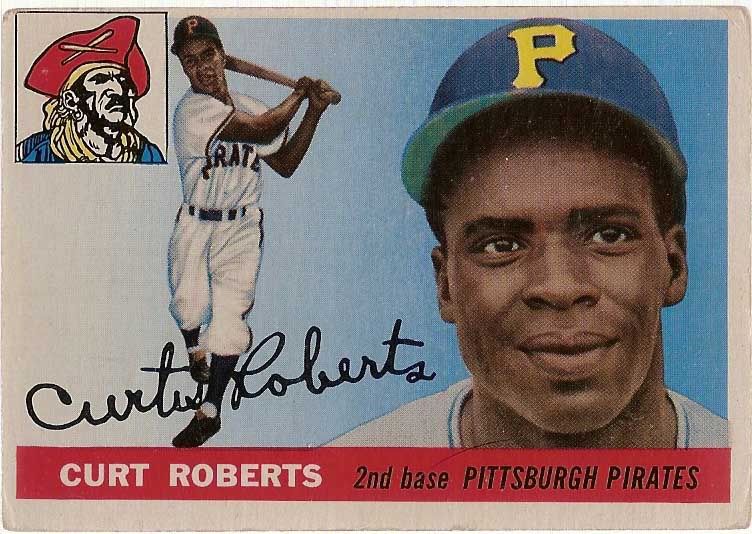 In 1945, Branch Rickey helped break baseball's color barrier, in turn setting in motion the wheels of a deep farm Dodger farm system that would keep the Dodgers in the pennant race into the next decade.
In 1945, Branch Rickey helped break baseball's color barrier, in turn setting in motion the wheels of a deep farm Dodger farm system that would keep the Dodgers in the pennant race into the next decade.In 1950, the Pirates hired Rickey as their general manager. Despite Rickey's historic position as a pioneer in capitalizing on the large population of untapped black talent, the Pirates did not field their first black player until the 1954 season (and a certain Puerto Rican would join the club in '55), only furthering the Pirates cellar dweller status throughout the decade.
Of the historic names that led the integration of baseball, Curt Roberts is one largely lost to history. Roberts played four seasons for the Kansas City Monarchs before transitioning to the affiliated minor leagues, where the Pirates purchase his contract in 1952.
The Pirates faced significant pressure from the black community in Pittsburgh to integrate, but Rickey seemed to be in no hurry to introduce the club's first black player. Whether this was a talent based decision (which is unlikely, due to the wealth of Negro League talent who had either played in Pittsburgh previously or lived in the area), none of the players met Rickey's extensive list of qualities for groundbreaking black players, or some other factors were at play, the fact remains that the Pirates were falling behind in baseball's biggest talent grab.
On April 13, 1954, Curt Roberts became the first black player to suit up for the Pirates, and would finish the '54 season as the team's starter at second.
After a slow start in '55, Roberts would bounce between the majors and AAA for the next two years, but wouldn't get any more extended playing time.
It is debatable whether Roberts got a fair chance with the club - some,including former Pirates player/broadcaster Nellie King, have argued the slick fielder simply needed more regular at bats for his hitting to develop. However, his career arc may indicate that Roberts major league showing was a fair approximation of his skill.
Roberts died tragically at age 40, killed in a roadside accident while changing a tire. His place in both baseball and Pirates history has been largely underscored, overshadowed by the struggles Roberto Clemente experienced in overcoming both racial and ethnic discrimination.
But it is undeniable that Roberts set the stage for the black and Latin players that would follow, marking a significant, and overlooked, chapter in the team's history.

No comments:
Post a Comment